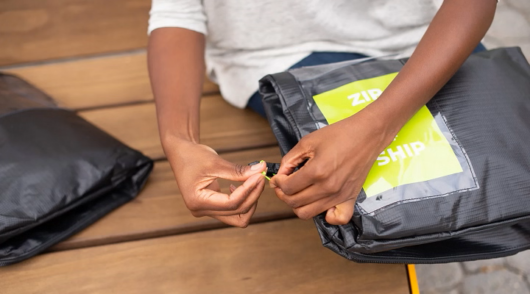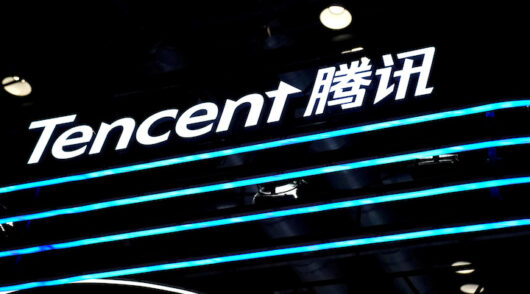Years of grassroots campaigning against single-use plastics had finally converged into a passionate public outcry. The focus was a conveniently straightforward cause – the abolition of drinking straws, created in the millions to be used one time only (if at all) and then released into the environment to break down over the centuries (if at all) or otherwise float out into the Great Pacific garbage patch to be swallowed up by marine animals.
Celebrities and social media influencers implored viewers to #stopsucking, advocate groups began to lobby both businesses and legislators to institute bans, and supporters proudly posted flattering shots of themselves using bamboo and metal alternatives. Ordinary consumers spotted using plastic straws swiftly found themselves the targets of the same kind of social disapproval usually reserved for people caught smoking around children, while the vendors who supplied them were increasingly regarded as if they were personally responsible for poisoning the oceans.
To be frank, straws have proved a fabulously convenient target for half-hearted environmentalists. Not only does giving up straws pose no serious inconvenience to the majority of people who consume beverages – cup to lip works just fine for most people – but removing them from counters has actually relieved drinks retailers from a cost of doing business, allowing F&B outlets to enjoy a mild saving whilst at the same time earning the right to conspicuously pat themselves on the back for “taking the problem of plastics waste seriously”.
It was an easy issue to pick the right side of, and so the response from the industry has generally been to ride the wave. Even major global franchises have announced measures to wind down their reliance on straws one after another – McDonald’s and Starbucks have each launched high-profile publicity campaigns since their respective announcements to phase them out. The PR gains from doing so may well have been generously rewarding.
While some campaigners have been quick to chalk up a win-win result for both eco-activism and sensible commercial interests, the public response to those retailers who have conspicuously committed to straw-free operations has been mixed. Australia’s McDonald’s, for example, faced a significant “last straw” backlash from frustrated consumers who felt the all-out removal of straws limited their options and took a step too far – many of them saw straw activism as a mildly annoying millennial fad and just wanted their straws back. McDonalds Hong Kong hasn’t helped matters by taping its straw dispensers permanently shut, only to place open boxes of straws right next to them.
Commentators from important environmental organisations – generally supportive of any move in the “right direction” no matter how small – have nonetheless made it difficult for retailers to avoid criticism for their profiting from the media attention and exposure they have received after banning straws. Those critics have accused such businesses as professing a late and grossly insufficient concern for the issues at stake. Some retailers hoping for a boost in consumer loyalty based on their newfound environmentalism have found themselves on the back foot, having to defend themselves against accusations of “greenwashing” instead.
“Insincere environmentalism”
According to zero-waste advocate Kathryn Kellogg of Goingzerowaste.com, greenwashing is “when a company spends more money on making you think it’s being eco-friendly than actually being eco-friendly” – in essence, insincere environmentalism.

Starbucks has made itself a perfect target for charges of greenwashing with its patently self-congratulatory moves to introduce a sippy-cup lid to replace straws for most drinks, as part of its global campaign to take straws out of the Starbucks equation entirely by 2020. The “nitro lids” have been a particular source of pride for the firm as it has rolled them out in various markets, issuing glowing press releases quoting CEO Kevin Johnson: “For our partners and customers, this is a significant milestone to achieve our global aspiration of sustainable coffee, served to our customers in more sustainable ways.”
Observers rightly wondered how Starbucks could possibly be shooting for sustainability when the nitro lids were themselves made out of plastic – and when Reason magazine finally put the issue to the test, sure enough, the new lids used significantly more plastic than the old lids and straws combined. Customers who #stoppedsucking and used the new lids were actually increasing the amount of plastics released into the environment.
In response to the criticism, Starbucks has been forced to issue stammering assurances that unlike straws, the new lids are recyclable – without acknowledging the fact that the vast majority of recyclable plastics are never actually recycled, particularly when contaminated by food waste – meaning Starbucks would have to carefully wash and process their used lids to give them a shot at even being eligible for recycling. That washing process would have its own environmental impact, and there’s no evidence that Starbucks is washing its trash. Neither is the recycling industry in general faring well these days now that China isn’t importing waste plastics anymore, with many recycling businesses reportedly sending their plastics straight to landfills now if alternative buyers can’t be found.
Starbucks’ PR might be skirting the issue successfully enough by focusing on Instagram promotional campaigns for the new lids rather than engaging in sincere ecological debate (and to be fair, there are other Starbucks initiatives that have more far-reaching impact than its nitro lid project), but the honest truth is that in this case, the greenwashing accusation sticks – because the facts simply aren’t on their side: frankly, the nitro lids are better for their advertising purposes than for saving sea turtles.
A compounding factor is that Starbucks makes a far more harmful environmental impact with its cups than it does with its straws. At least 4 billion Starbucks cups are discarded into the environment each year, and as the cups are made of plastic-coated paper, neither the plastic nor the paper can be recycled. This is a problem Starbucks has promised to address on multiple occasions but has yet to make any headway on – its latest proposal has been to put up US$10 million in prize money for anyone else who can figure out a solution. In a cheeky Instagram post, Kathryn Kellogg’s submission was the ceramic mug.
“It’s reusable. Washable. Closed loop”, she writes. “Please make the check out to Kathryn. But, this is seriously laughable. Making it compostable or recyclable is a bandaid. The problem is that it’s still disposable.”

Targeting straws is… myopic
In defense of those retailers trying to do right by the environment while surviving the staunchest accusations of the anti-straw movement, the whole concept of targeting straws as a significant environmental evil is at least a tad myopic. Straws account for a fraction of plastic waste – the majority of the Great Pacific garbage patch is abandoned fishing gear – and the side effect of promoting a boycott on straws is not to stimulate environmental action, but to silence it among those who feel that they’ve already done their part. This has long been the bugbear of green activism: token grassroots campaigns like straw bans by their very nature simplify complicated issues and stunt an appreciation for the actual scale of the climate-change problem. To score victories for inconsequential progress in any effort is to create the illusion that you can win a difficult fight without seriously hard work, which is patently untrue.
It is very tough for retailers to respond appropriately to great societal challenges and take meaningful stances when guided by popular hashtag activism. When your CSR budget is given over to trendy surges in the social media cycle, even the most well-meaning promotions can come off as callous greenwashing efforts that can taint your brand.
The key for retailers who want to avoid the greenwashing label and defend against accusations of insincerity is clearly to go a little deeper and get the facts straight. Environmental issues are frighteningly complex, and banning a product or technology that has gone out of favour without considering what the impact of its replacement will be may achieve nothing at all beyond empty and obvious self-congratulatory PR.
Greenwashing is all about blatant insincerity. Retailers who want to back their brand with a show of support for an environmental cause – or indeed any cause – need to be sincere. Get both sides of the story. If you’re doing recycling, make sure the recycling infrastructure to repurpose your waste actually exists. Be aware that dirty plastic (around 25 per cent of plastics collected) cannot be recycled at all. Above all, know that sometimes the solution isn’t finding a better disposable alternative, but to offer alternatives that don’t need to be disposed of at all.
In a World Resources Institute blog post last year, former EPA assistant administrator Mathy Stanislaus writes: “…bans leave the impression that they solve the plastics pollution problem without much discussion of systematic solutions. As a society, we should think holistically about the products we use and their impact. We can’t just ban bad products – we must invest in alternatives.”
- This feature originally appeared in the Inside Retail Hong Kong magazine edition. Subscribe to the digital or print version here.
- Michael Arnold is associate editor of Inside Retail Asia.
| Going beyond the straw ban – ideas on how to avoid greenwashing Apply charges for disposable items along with substantial discounts for customers who bring their own – and advertise this in store.All customers should be asked if they’re dining in – and if so, orders should be served using real mugs, cups, plates and utensils that can be washed and reused. Advertise this in store.Sell reusable tumblers in store that customers can easily carry to enjoy the bring-your-own discounts.Offer takeaway tumblers with a cash-back offer for their return, or that can be exchanged for clean tumblers.Start recycling or composting efforts at all locations and involve the community.Use advertising to make reusables more normal than the disposables. Source: Goingzerowaste.com |






